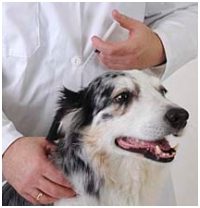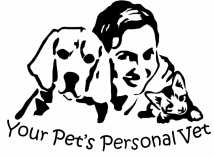There are a number of serious viral diseases puppies and dogs are at risk from. However, they can easily be protected with a simple vaccination regime. Responsible pet care requires puppies to be given their initial course of vaccinations, but this cannot protect them for the rest of their lives. Adult dogs require regular vaccination to maintain immunity against disease.
Puppy Vaccination
Puppies are ‘temporarily’ protected against many diseases by antibodies received through their mother’s milk. These maternal antibodies decline in the first few months of their lives, however until they drop sufficiently they can also neutralise vaccines. This is why a series of vaccinations is necessary in a puppy.
Adult Dog Vaccination
The immunity from puppy vaccination weakens over time and your pet can again become susceptible to disease. Annual health checks and booster vaccinations, as required, will provide the best protection for the life of your pet.
DISEASES WE VACCINATE AGAINST:
Canine Parvovirus
This is a virus that causes gastrointestinal disease (bloody diarrhoea and vomiting) and, rarely, heart disease.
It is usually successfully treated with intensive care but can be fatal. Incubation is 4 –
Canine Distemper
This is a viral disease spread by aerosol; which means that the virus particles may float about in the air after an infected animal has coughed etc. Symptoms include coughing, diarrhoea, vomiting, anorexia, dehydration and weight loss. Secondary bacterial infections cause coughing, and purulent nasal and ocular discharge. These symptoms may clear up but then neurological signs develop.
These include seizures, ataxia, lack of coordination, circling, blindness, and vocalization as if in pain. These symptoms can lead to permanent weakness, blindness, facial paralysis, tremors, compulsive circling, and head pressing. Often the disease is fatal. There is no specific treatment. Diagnosis is based on clinical signs or virus isolation from cells.
Canine Hepatitis
This is a viral disease that affects the dog’s liver. This virus is shed by infected dogs and lives in the environment for months. An unprotected dog acquires it through inhalation or ingestion. Clinical signs include depression, lethargy, abdominal pain, and reluctance to move. These occur in 4–7 days past exposure. The dog may recover in 3-
Canine Kennel cough/whooping cough
This is a disease complex caused by a variety of viruses and bacteria, namely Parainfluenza (Type II) virus and the bacteria Bordetella bronchiseptica. It is not confined to kennels as the name suggests. It is transmitted very easily by dogs coughing on one another. Therefore it is most prevalent where there are a lot of dogs present, eg obedience clubs, dog shows, the pound, boarding kennels etc. It is the equivalent to the human whooping cough.
This disease is characterised by a persistent hacking cough, which often sounds like a ‘goose honking’. It is not usually fatal but it causes significant distress to the dog and owner. Some animals will stop eating and may become depressed and lethargic. Kennel cough can be treated with antibiotics, nursing and rest, however, it is best to try to prevent the disease in the first instance, especially due to it being so highly contagious.
The above five mentioned viral diseases (Distemper, Hepatitis, Parvovirus, Kennel cough – PI2 & BB) are most commonly vaccinated against, and grouped together they are often known as a C5 Vaccination.
Read about heartworm prevention…


